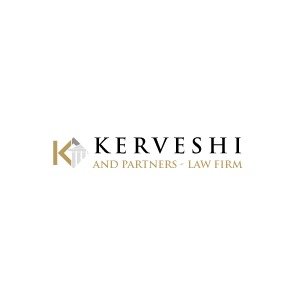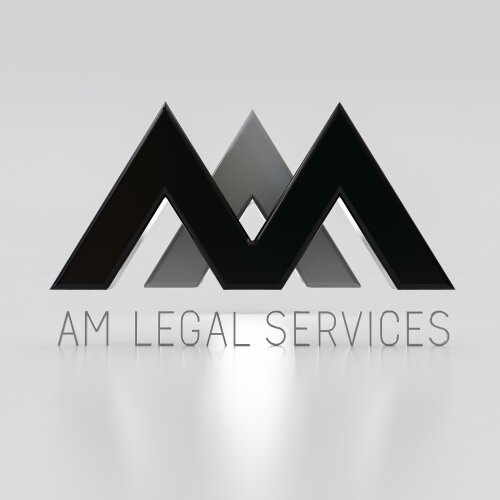Best Bankruptcy & Debt Lawyers in Kosovo
Share your needs with us, get contacted by law firms.
Free. Takes 2 min.
Or refine your search by selecting a city:
List of the best lawyers in Kosovo
About Bankruptcy & Debt Law in Kosovo
Bankruptcy and debt law in Kosovo provides a legal framework to manage financial distress for both individuals and businesses. The laws are designed to ensure equitable treatment of creditors while providing debtors with a chance to reorganize or eliminate debts in a structured manner. Kosovo's approach to insolvency includes provisions for voluntary bankruptcy, involuntary bankruptcy, liquidation, and restructuring, as well as guidelines for debt collection practices. Understanding these laws is crucial for anyone involved in financial transactions, whether as creditors or debtors.
Why You May Need a Lawyer
Legal expertise in bankruptcy and debt matters is essential in various situations. Common scenarios include: dealing with overwhelming personal or business debt, negotiating with creditors, understanding one's rights under Kosovo's insolvency laws, accessing protection from creditors through bankruptcy filings, and navigating the complexities of debt restructuring or liquidation proceedings. A lawyer can provide guidance on the best course of action, ensure compliance with local laws, and represent one's interests in legal proceedings.
Local Laws Overview
Kosovo's bankruptcy and debt laws encompass several important areas:
- Bankruptcy Procedure: Kosovo's laws define the steps for both voluntary and involuntary bankruptcy, emphasizing creditor rights and debtor obligations.
- Debt Collection: The legal framework outlines permissible methods for debt recovery, ensuring fair practices in pursuing unpaid debts.
- Debtor's Rights: Debtors have certain legal protections and rights, such as exemptions from debt collection under specific conditions.
- Reorganization and Liquidation: Provisions exist for the restructuring of debts to allow businesses to continue operations, or for liquidation where continued operation is not feasible.
Frequently Asked Questions
What is the process for filing bankruptcy in Kosovo?
Filing involves submitting a petition to the competent court, followed by the court's consideration of the financial documentation provided by the debtor, and subsequent court rulings on the case.
Can individuals file for bankruptcy, or only businesses?
Both individuals and businesses can file for bankruptcy under Kosovo law, with procedures tailored to their specific financial circumstances.
What types of debts can be discharged in bankruptcy?
Most unsecured debts can be discharged; however, certain obligations like alimony, child support, and some tax debts may not be dischargeable.
How does bankruptcy affect my credit score?
Bankruptcy can significantly impact your credit score, making it difficult to obtain new credit. The effects can last for several years, depending on the type of bankruptcy.
What is the difference between liquidation and reorganization?
Liquidation involves selling assets to pay off debts, whereas reorganization allows debt restructuring to enable continued operation of a business.
Can creditors continue to harass me once I've filed for bankruptcy?
Filing for bankruptcy initiates an automatic stay, which halts most creditor actions, including harassment, collections, and lawsuits.
Do I have to appear in court if I file for bankruptcy?
Yes, debtors are usually required to attend hearings and meetings with creditors as part of the bankruptcy proceedings.
What are the costs associated with filing for bankruptcy?
Costs can include filing fees, legal fees, and any required costs for credit counseling or financial management courses.
Can I keep any assets if I declare bankruptcy?
Certain assets may be exempt under Kosovo law, allowing debtors to maintain possession despite the bankruptcy filing.
What happens if a business cannot comply with its reorganization plan?
If a business fails to adhere to the terms of its reorganization plan, it may be converted to a liquidation proceeding.
Additional Resources
Several resources are available for those seeking information or assistance:
- Kosovo Judicial Council: Provides general legal information and guidance on court procedures.
- Kosovo Bar Association: Offers a directory of licensed attorneys who specialize in bankruptcy and debt law.
- Consumer Protection Office: Assists individuals facing unfair debt collection practices.
Next Steps
If you need legal assistance regarding bankruptcy and debt, consider the following actions:
- Consult with a lawyer specialized in bankruptcy and debt law to discuss your situation.
- Gather all financial documentation, including your debts, assets, income, and expenses, for legal review.
- Explore possible alternatives to bankruptcy, such as debt restructuring or settlement, with your legal advisor.
- Attend all required legal consultations and court hearings to ensure smooth progression of your case.
Lawzana helps you find the best lawyers and law firms in Kosovo through a curated and pre-screened list of qualified legal professionals. Our platform offers rankings and detailed profiles of attorneys and law firms, allowing you to compare based on practice areas, including Bankruptcy & Debt, experience, and client feedback.
Each profile includes a description of the firm's areas of practice, client reviews, team members and partners, year of establishment, spoken languages, office locations, contact information, social media presence, and any published articles or resources. Most firms on our platform speak English and are experienced in both local and international legal matters.
Get a quote from top-rated law firms in Kosovo — quickly, securely, and without unnecessary hassle.
Disclaimer:
The information provided on this page is for general informational purposes only and does not constitute legal advice. While we strive to ensure the accuracy and relevance of the content, legal information may change over time, and interpretations of the law can vary. You should always consult with a qualified legal professional for advice specific to your situation.
We disclaim all liability for actions taken or not taken based on the content of this page. If you believe any information is incorrect or outdated, please contact us, and we will review and update it where appropriate.
Browse bankruptcy & debt law firms by service in Kosovo
Kosovo Attorneys in related practice areas.
Browse bankruptcy & debt law firms by city in Kosovo
Refine your search by selecting a city.










